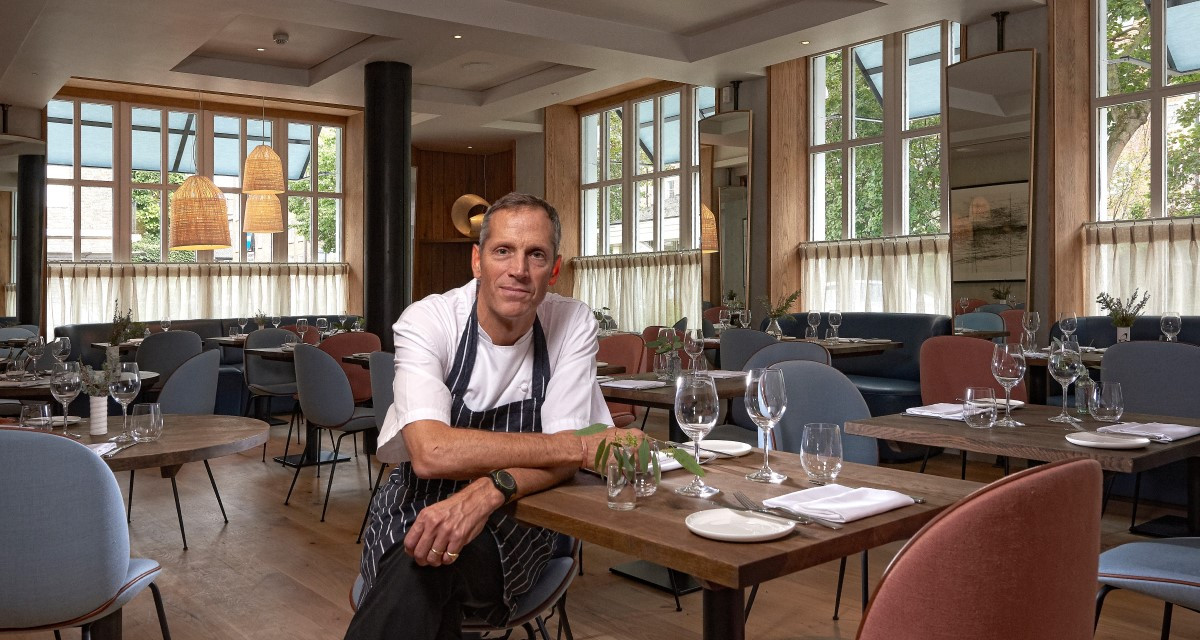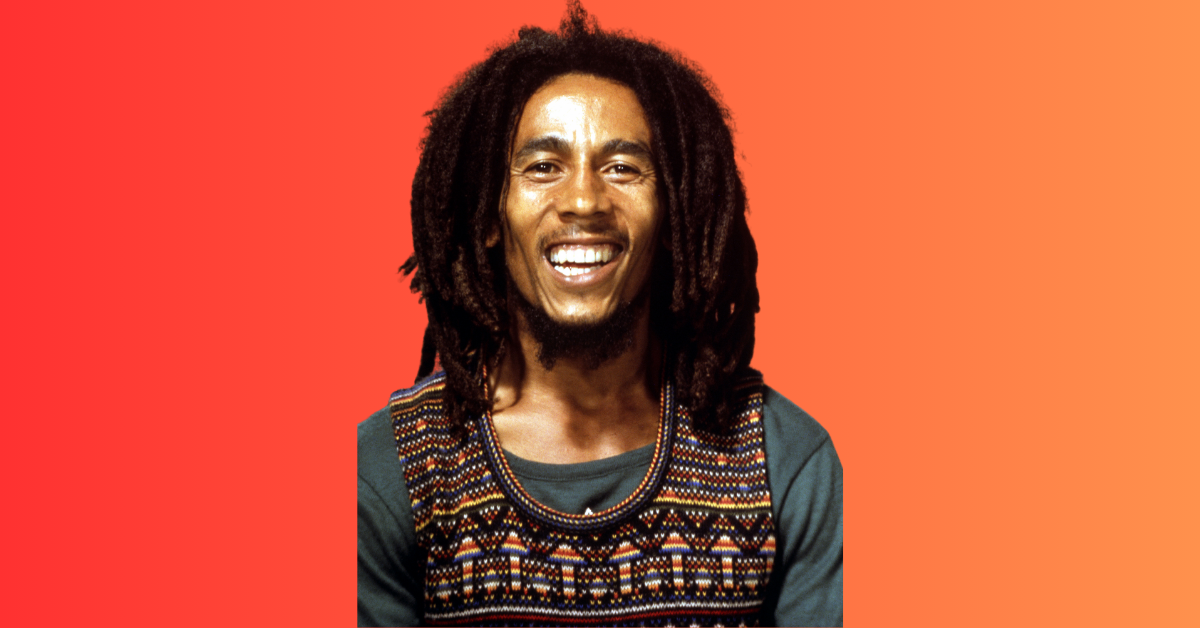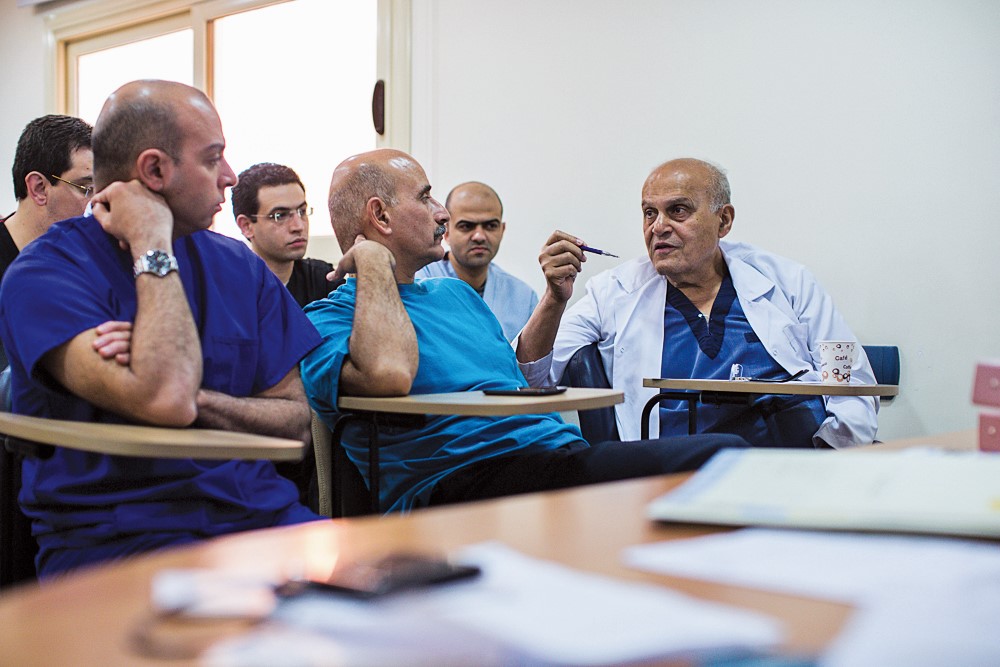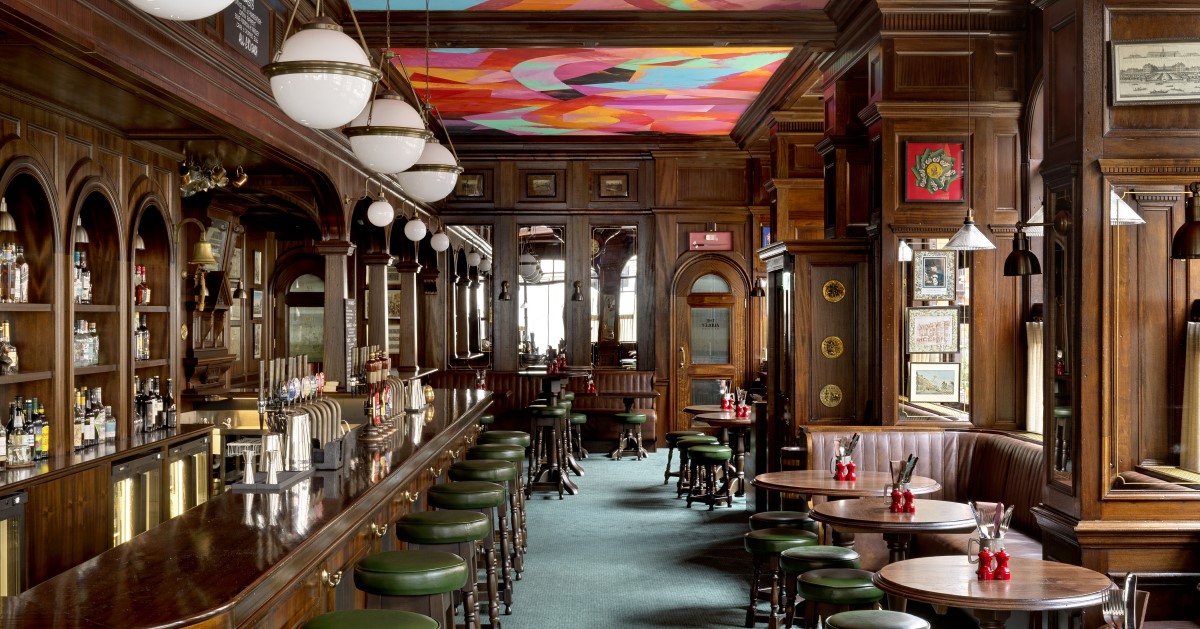Michelin star chef Phil Howard on “pure” cooking and overcoming addiction
Words: Will Moffitt
Phil Howard is a ‘chef’s chef’. The profiles and podcasts all say it, now there is an accolade to prove it. Howard’s achievements have been honoured in the form of this year’s Special Mentor Award from Michelin. Alongside his influence on a coterie of cooking talent, the guidebook cites his iconic restaurant The Square – which clinched double Michelin-starred notoriety in Mayfair in 1998 – as a “beacon of reliability and consistency” that was as popular with chefs as consumers.
Speaking to Howard at Elystan Street, his 1-star Michelin restaurant in Chelsea, it’s clear that delivering culinary delight has always been his number one priority. “I cook things that people enjoy eating, and that's been there from the very start,” he says. “I'm not an inquisitive chef in terms of trying to make technical things or come up with new flavour pairings.”
“When you eat something that stops you in your tracks it's never anything complicated,” he adds. “It's normally a burger, or an amazing piece of protein dipped in a bit of puree, or a Twix. I've always kept that absolutely at the forefront of my mind: food's capacity to deliver pleasure.”
Howard, by his own admission, came late to the kitchen. His experiments with cooking began in his student digs while studying microbiology at Canterbury University. After graduating he went travelling with a friend and took a job working as a waiter in a restaurant in Sydney. He knew instantly that he had found his calling.
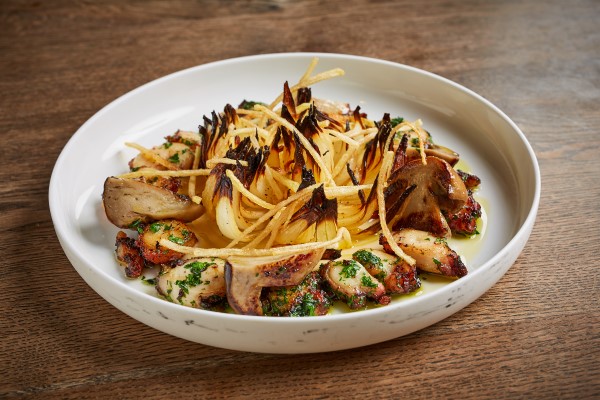
“I just thought this is where I want to be,” he explains. “I had gotten far enough away from the expectations of me to hear my own truth. I know that sounds a bit flowery, but I had always thought that I was supposed to become a businessman or something.”
In 1988, Howard returned from his travels to a London cooking scene in the thrall of haute cuisine and French fine dining. A job at the Roux brothers’ contract catering company taught him the raw basics, but it was cooking under Marco Pierre White at Harvey’s that left an indelible mark on the young chef.
“It was the first time I've seen food that was that beautiful. Marco had an eye for dressing food that was just extraordinary,” he recalls. “The technique and flair in the cooking was more contemporary than anything I'd done before.”
After a year under the Frenchman's exacting stewardship Howard went the same way as his predecessors and was moved on for “over boiling Marco’s pomme puree”.
Soon enough he was at Simon Hopkinson’s Bibendum, the much-loved restaurant created out of an abandoned tire factory on Fulham Road. Bibendum’s charm was that it unashamedly served simple dinner party food while the rest of London seemed to be fiddling, pruning and experimenting. Hopkinson didn’t want his dishes to be fancy; he sought simplicity and flavours that melted in the mouth like hot butter.
“Simon was uninterested in a lot of the things that fine dining is preoccupied with: technique, delicacy, and being complicated,” Howard recalls. “He taught me about the importance of ingredients, seasonality, provenance, and harmony of flavour.”
In 1991, still only 24, he opened The Square, a French-fine dining restaurant on King Street, St James’s, with business partner Nigel Platts-Martin. Despite being a talented chef with a “good palette”, he had little to no kitchen management experience.
The learning curve was steep, the standards impeccably high, and the daily regime all consuming: “No other restaurant did it seven days a week. Nigel and I were determined to achieve everything we could over and above running a great business.”
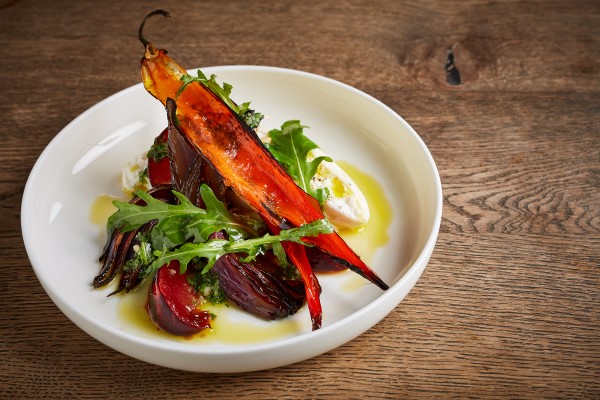
After securing its first Michelin star in 1994, The Square came to Bruton Street, Mayfair, three years later. Critics were even more complimentary this time around and the customers rolled in. A second star came a year later.
On one level this fame and success brought Howard huge personal pride, but a relentless work schedule, coupled with spiralling drug use, nearly destroyed him. In 2016, he detailed those experiences in a brave and erudite article for The Guardian, recalling that ‘an uncomplicated sense of utter spiritual bankruptcy and very real pain’ pushed him to seek help.
“Addiction has been a huge part of my life,” Howard says. “Even with all the knowledge that I have amassed I still don’t know why some people end up with it and others don’t. I was brought up with phenomenal parents. There are no excuses. There were no traumas that I needed to run away from.
“Certainly the demands of the job contributed to it. In the end, thankfully, I did two stints in rehab. I went to Narcotics Anonymous for many years. There’s no two ways about it. It saved my life.”
Howard credits his now healthy and happy state of mind to many things: the loyalty of his family, his friends, and a consistent exercise regime. Finding peace outside of his frenetic work schedule has become a necessity rather than an ambition.
“It's very easy for cooking at this level to become your entirety and that's dangerous,” he admits. “It’s hard because every minute is live and real, and if you want to try and get three stars everything has to be perfect. That's just ridiculous pressure.”
While he has never been “a tyrant in the kitchen”, dealing with his own struggles has made him more attuned to the moods of his colleagues – “I’m not on the lookout, but I try to make myself available to them” – and more determined to foster a positive and open working environment.
After the gruelling ambition he displayed in his youth he is now more concerned with delivering a cuisine and an experience in line with his personal tastes: more flavour, less formality. To that end, he sold The Square in 2016 to concentrate on his other restaurants with business partner, Rebecca Mascerenhas – Elystan Street, Kitchen W8 and Church Road.
“The square evolved into something really special over the years and we had great people working there,” Howard says. “I started it when I was 24 and we sold it when I was 50. In that time you change as a chef, as a consumer, and as a human being. What I was cooking was no longer in keeping with what I felt I wanted to be doing, or eating.”
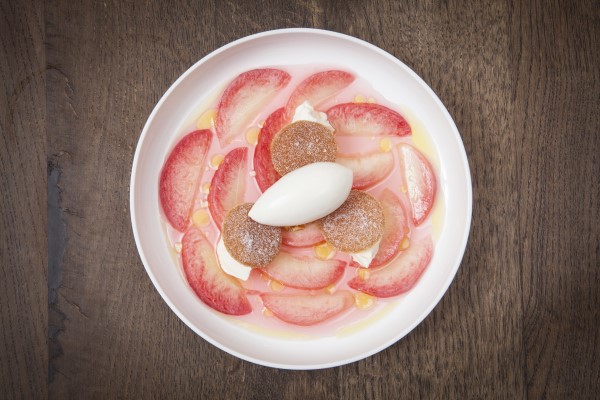
If that sounds like the 56 year old is disillusioned with cooking think again. Speaking of Elystan Street, the Chelsea venture he opened with Mascerenhas in 2016, Howard talks passionately about his desire to craft simpler, seasonal dishes and do away with the more refined and polished elements of haute cuisine.
After a pandemic-induced lull he is hungrier than ever to make up for lost time and deliver mouthfuls that are pure, precise, and joyous
“I just feel that the menu is the best it's ever been,” he says. “We missed two springs during Covid and it's been really great working with all that green stuff again. There are some dishes on there now that I look at and go: ‘now that's a banging plate of food’. There's nothing technical there, they’re very direct, utterly delicious, natural looking. That's where I want to be.”
After so much commercial and critical success, one wonders what this accolade-laden chef has left to strive for. As it turns out, wearing the apron less has become an aim in itself.
“You’re only on the planet once and the clock's ticking,” Howard says. “I'm really passionate about food and the restaurants that I'm involved with. Now it’s about building teams of people who can take the strain, and make it happen. I don't want to be at the coalface anymore.”

